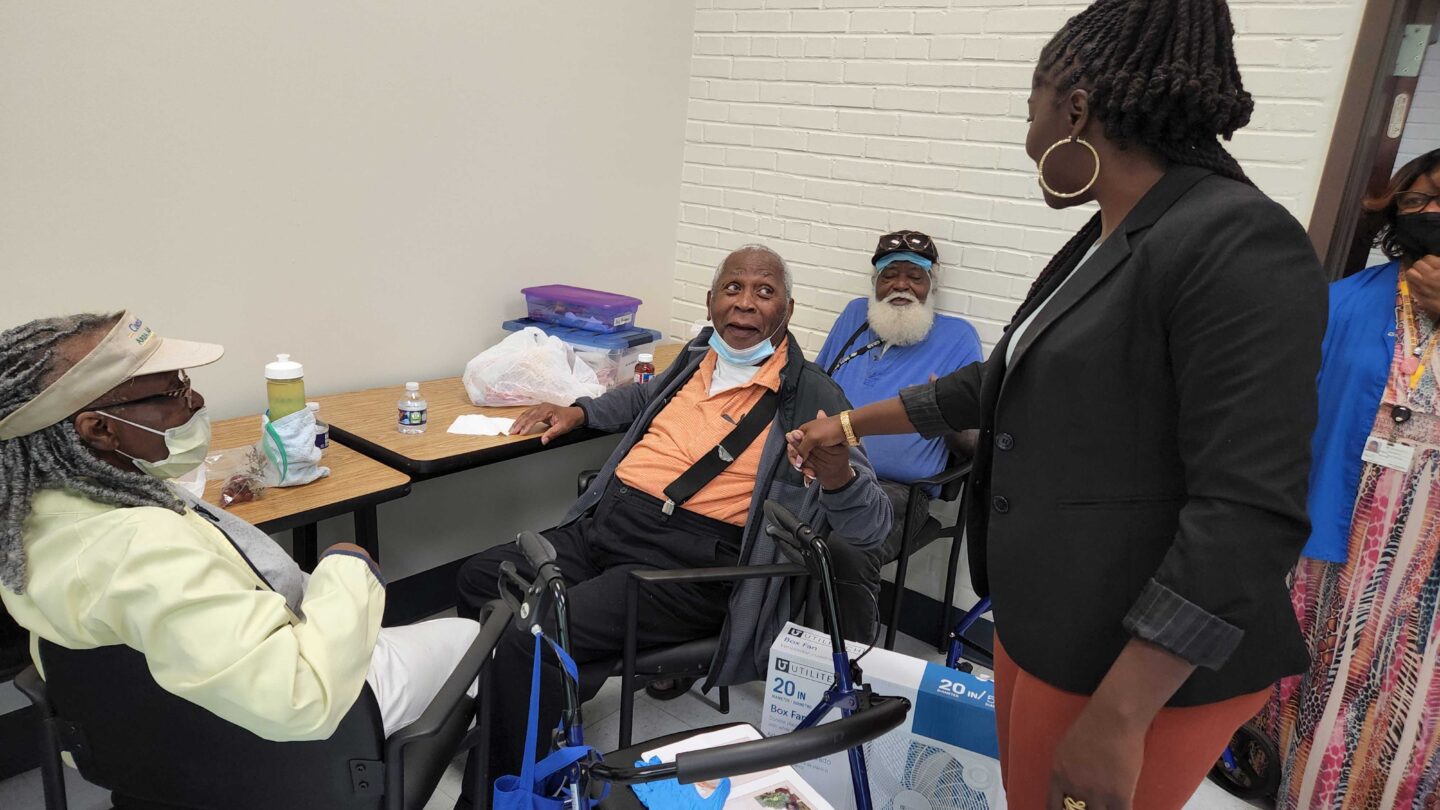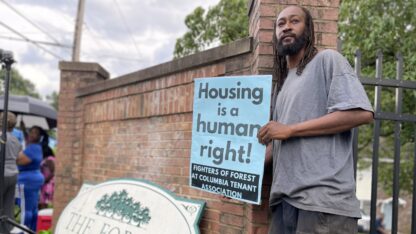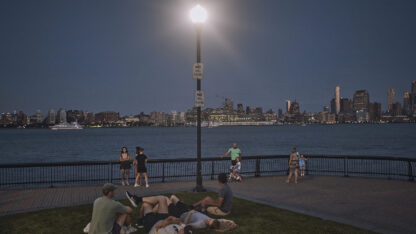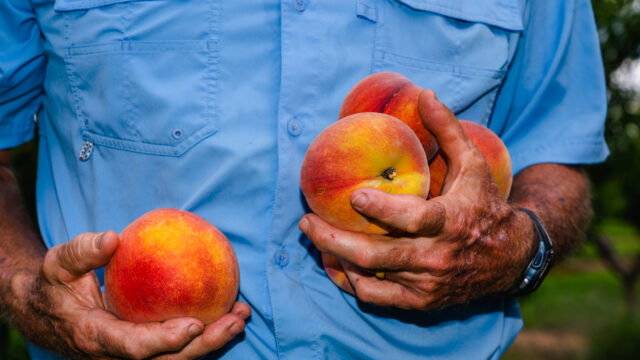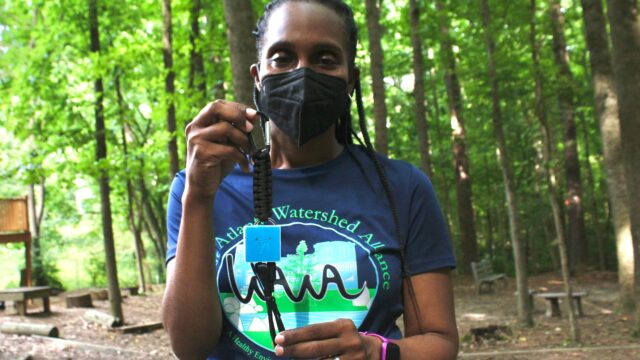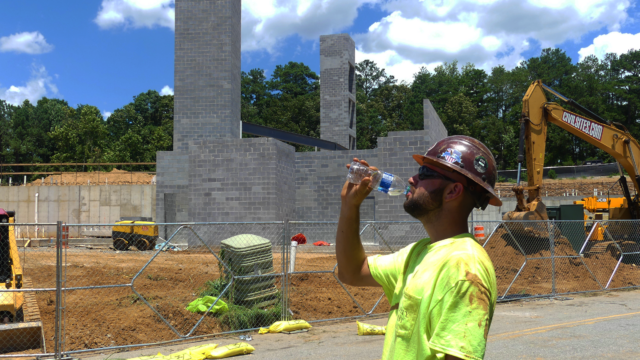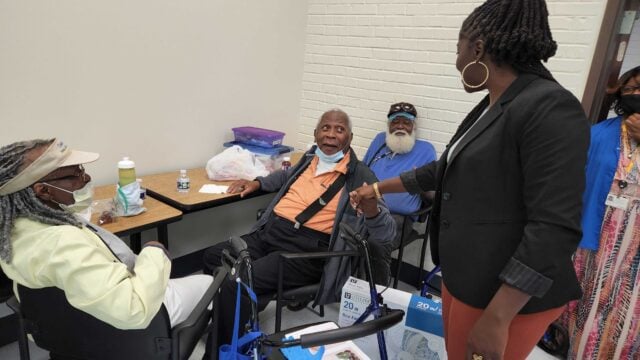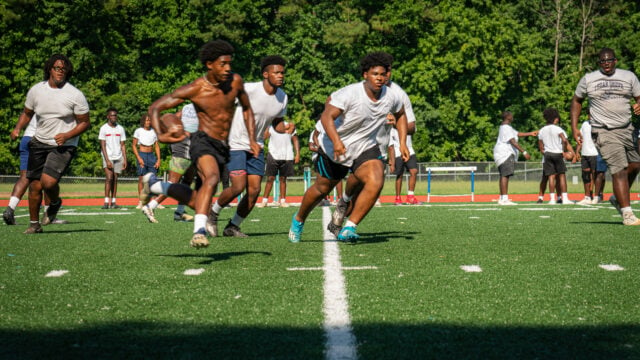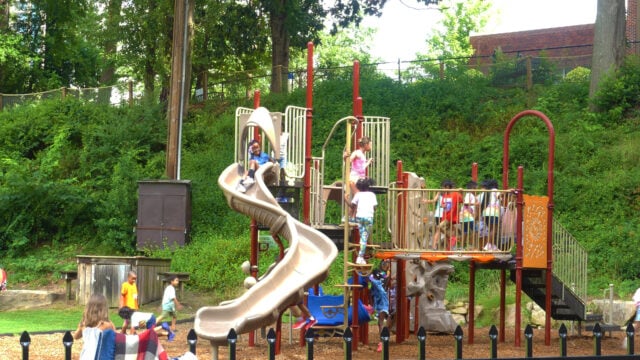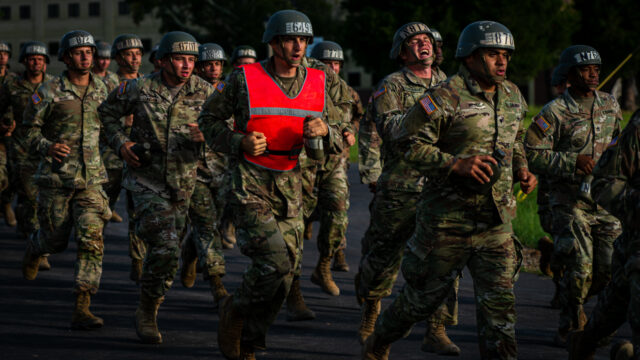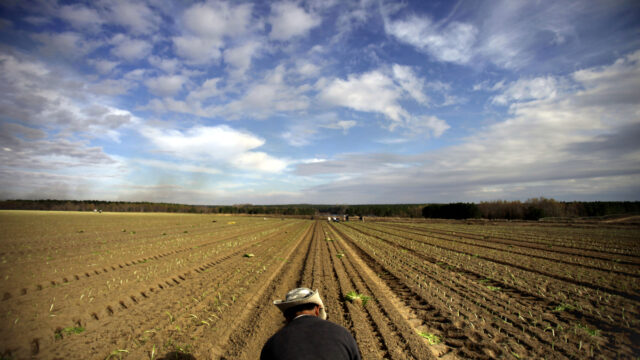On a recent, brutally hot day in Savannah, a group of seniors cooled off in their local community center, in West Savannah. Mahogany Bowers, the founder of local nonprofit Blessings in a Bookbag, joined them with some refreshment: juice, water and on this particular day, a little something extra — box fans.
One person who took home a fan was 74-year-old Juanita Washington.
“I have the window air conditioning, you know, in certain rooms,” Washington said.
She explained her house doesn’t have central air, but she’s been running those window units day and night in the hot weather. This spring, she enrolled in a utility assistance program that’s paying her electric bills.
Without that help, it would be a different story.
“No, I don’t think I would be running it as much and my daughter, somebody [would] have to help me pay that bill,” Washington said.
Air conditioning is just about the only thing that can offer sustained relief from the Georgia heat. But many Georgians, especially those with lower incomes, don’t have air conditioning at home. And because running AC can make the power bill skyrocket, many who have it don’t use it.
That’s not just uncomfortable; it’s dangerous.
Bowers gives away fans rather than air conditioners because they are cheaper to run, even though they often just move hot air around. She said that’s still better than trying to breathe stagnant hot air.
“That wet, muggy heat,” she said. “I mean, it’s literally like somebody took a wet blanket and put it over your face.”
It’s a reality people are facing throughout Georgia: climate change has made summers hotter. And it’s going to keep getting worse.
For those without air conditioning to escape the heat, it’s also more deadly. Hotter temperatures mean more heat exhaustion and heat stroke.
“Heat stroke is much like a conventional stroke that we’ve all heard of, it is robbing the brain of oxygen, largely because you’re robbing the brain of blood,” said Brian Stone of Georgia Tech, who researches air conditioning and health. “And so that’s a really deadly issue.”
In Atlanta, close to 95% of households have central air according to Stone’s research. But he said many people that have AC don’t use it for fear of high power bills. According to another Georgia Tech study, Atlanta has high energy burden levels — meaning households that spend a disproportionate amount of their income on energy costs.
In some parts of the city, as many as 20% of households don’t have central air.
“We find these households are clustered,” Stone said. “They’re clustered in lower income, often communities of color that do not have air conditioning, and therefore are exposed to the greatest heat risk just during normal hot weather in the summer.”
Those same neighborhoods tend to be hotter overall because they have fewer parks and trees. And residents often have more underlying health issues, due to lack of adequate healthcare, poor air quality and myriad other problems.
“It’s like, whatever dimension you look at, risk is amplified in these communities,” Stone said.

Assistance programs like the one that pays Juanita Washington’s power bills do exist to help people afford AC — but they’re often already full. Stone said it’s also important to address the problem at the community level.
“In addition to providing households with air conditioning, which increasingly is going to be critical to do, we can cool down the neighborhoods too,” he said.
That could mean steps like planting trees — though it takes years for them to grow big enough to provide enough shade. In the meantime, Stone said cities need more cooling centers where people can escape the heat.
In Savannah, Bowers said the people she works with know it’s getting hotter, and they know humans are causing it.
“We know that when the azaleas start to bloom, okay, this is this season coming in,” she said. “Now you see azaleas blooming when they’re not supposed to bloom.”
She said it’s hard to worry about climate change, though, when people are struggling with their immediate needs, like putting food on the table.
But the problems go hand in hand. The longer humans keep emitting carbon dioxide, the worse the heat will get. And it’s going to harm those in poverty the most.
This story is part of WABE’s The Heat Effect series.
This coverage is made possible through a partnership with WABE and Grist, a nonprofit, independent media organization dedicated to telling stories of climate solutions and a just future.
